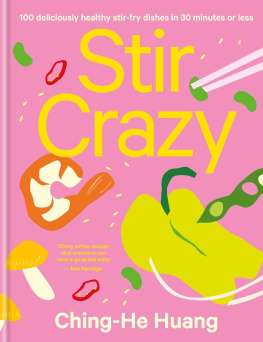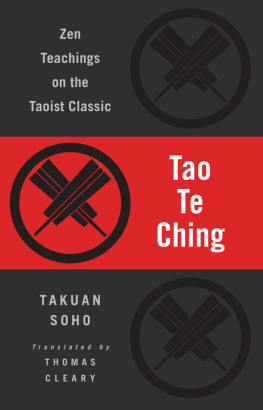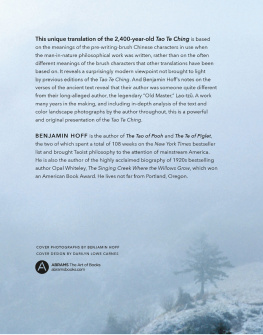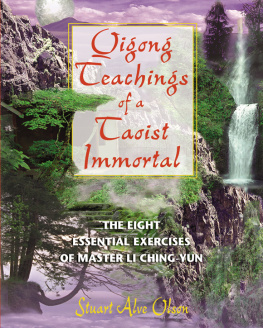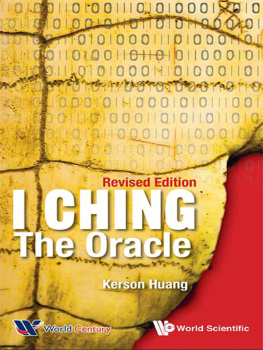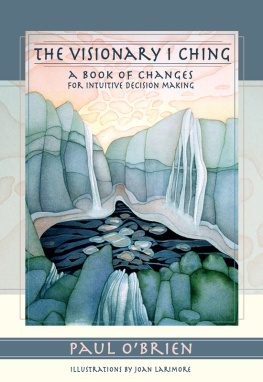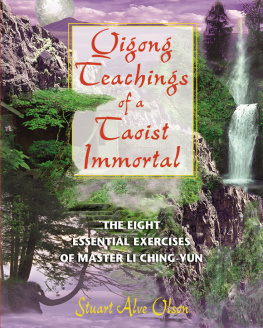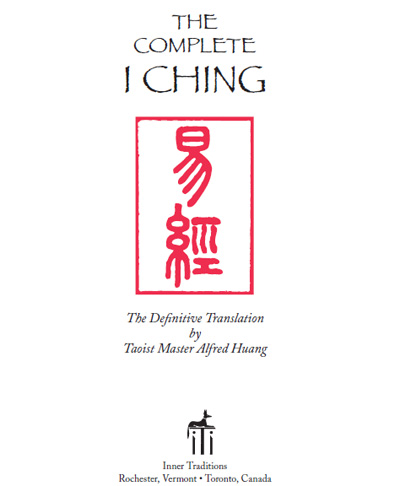
During this great time of change this book is dedicated to those who are longing to change and ready to change to a meaningful and successful life of abundance and happiness.
The Complete I Ching

This translation, from a Taoist master, is the most extensive treatment of the subject I have ever encountered.... the quality of the work is so exceptional that it is hard to find fault with it.... if you wish to learn this system, this book will be an indispensable aid to your education. There is such a wealth of information contained in this book (each page contains the hexagram being discussed and the ideograph of the name, so there is no confusion) that it is hard to overstate the usefulness of this work.... This it is of use and benefit for both the novice and the more experienced user.
MIKE GLEASON, WITCHGROVE
Huang succeeds, also, in producing a work that keeps opening up new vistas of understanding and inviting the reader to explore the many layers of discovery offered by the mathematical, visual and literary dimensions of the classic.
REG LITTLE, NEW DAWN
If some years
were added to my life,
I would dedicate fifty years
to study of the Book of I,
and then I might come
to be without great fault.
CONFUCIUS
AT AGE 70
Acknowledgments
I would like to express my deep gratitude to three most important persons; without their loving support and encouragement this book would not have been possible. First is my revered teacher, Master Yin; without his earnest teaching instruction, I would not have the knowledge to translate this book.
Second is my dear friend Bill Smith, who has made I Ching a daily practice since 1973 and kept daily notes continuously. After he read over the fifth revision of my manuscript he said, Alfred, for the past fifty years Richard Wilhelms translation of the I Ching has been the standard. I hope your book will be the standard for the next fifty years. I dont know whether my translation will become the standard for the next fifty years, but Bills challenge and encouragement have been the motivating force for the constant improvement of the translation.
The third important person is Jon Graham, the Acquisitions editor of Inner Traditions International. His enthusiastic effort in conferring with his company about publishing my book reminds me of an ancient tale.
It is not rare to find horses able to cover a thousand li a day, but Ba-le is rare. In the later period of the Spring and Autumn Annals (770476 B.C.), there was a man, Ba-le, who was adept in looking at a horse to judge its worth. Among a herd of horses he was able to point out the one that was able to cover a thousand li a day. (Li is a Chinese unit of length equivalent to half a kilometer.)
The story suggests that, without Ba-le, horses able to cover a thousand li a day often go unrecognized. Although my new translation of the I Ching is not a horse that covers a thousand li a day, without Jon Graham it would not be recognized.
I also wish to offer my heartfelt thanks to Steve Thomson and Linda Millar. During the time I was working on this translation, I stayed at the Zen Monastery at Akahi Farm in Haiku, Maui, where I met Steve. When he saw I was making a new translation of the I Ching, he told me it was a matter of great interest to him to read my manuscript. During the first three months he came to my home every night to read over my new translation and point out my English mistakes. After I made the fifth revision, Linda proofread the text.
I would like to express my gratitude to Marguerite Dinkins for the love she gave me. She spent all of her precious time being with me, reading over my manuscript, and polishing the English of my translation during her vacation on Maui. We enjoyed the beautiful scenery, the nice weather, the harmonious atmosphere, and our lovely like-mindedness.
During the time I worked on the seventh revision, Courtney Collins came into my life. Through her pureness of heart and sincerity in love I experienced the harmony of yin and yang, the dance of the souls, and the interplay between Heaven and Earth. The virtue of her femininity brought me to a new level of understanding the true significance of Qian and Kun, the first and second gua of the I Ching.
I would like to extend further thanks to Bill Smith for his appreciation of the Tao of I and his understanding of the importance of finding the most appropriate English words for the names of the gua. During my eighth revision, I found that my original manuscript was not absolutely objective. With the help of Bill, I checked my manuscript word for word against the Chinese text several times and in most places I followed the Chinese word order. Without Bills help it would have been almost impossible for my final revision to reveal the true essence of the I Ching.
I would like to express my appreciation to Inner Traditions International for publishing this book, making a great contribution in presenting and carrying forward Chinese culture. My heartfelt appreciation, in particular, to Thomas Thamm, for designing the beautiful cover which truly captures the essence of the book, and to Kristin Camp, for designing the interior and preparing the ancient pictograph for each gua. I also express my deep gratitude to my editor Rowan Jacobsen and copyeditor Marcia Means for their patience, support, and suggestions in helping me turn one of the most profound and abstruse Chinese classics into a readable book.
Preface
I
I emigrated from China to the United States in 1980. After sixteen years in America I found that people in the Western world are interested in the I Ching: The Book of Change. But there was a different story in its native land.
From the time I was very young I heard that the I Ching was a Tian Shu, a Heavenly book; without the verbal instruction of a competent scholar, no one can understand it. After the Communists took over China in 1949, the I Ching was denounced as a book of feudalism and superstition. It was banished from the market, and reading it was not allowed. In the early 1960s, before the so-called Cultural Revolution, Dr. Ting Jihua, a most eminent Chinese physician in Shanghai; professor Liu Yenwen, a well-known professor of Chinese classical literature; and I attended the revered Master Yins private gatherings, where he taught us the I Ching. It was absolutely an underground activity. At that time, all of us had been labeled as antirevolutionary right-wing advocates. If our meetings had been discovered by any Communist Party member or the police, we would no doubt have been imprisoned. Master Yin was more than eighty years old. He sensed that a calamity would soon befall China and he wished to pass his teachings on before he died. He offered on his own initiative to teach us the esoteric knowledge of the I Ching, which he had inherited from his own revered master. As we studied, the situation in China grew worse, and our hearts grew heavier and heavier. We realized that many families would be broken up and countless people would be persecuted.
Although we knew that after the long night there would come the dawn, the dawn did not come soon enough. In two years Master Yin and Dr. Ting passed away one after the other. Professor Liu lost his desire to live. He attempted suicide several times. Although I encouraged him to persevere, deep in my heart I knew that those who died were the blessed ones. They had ended their sufferings and were able to enjoy everlasting peace. Those who were still living had to face unimaginable suffering and strive for survival.
Next page

